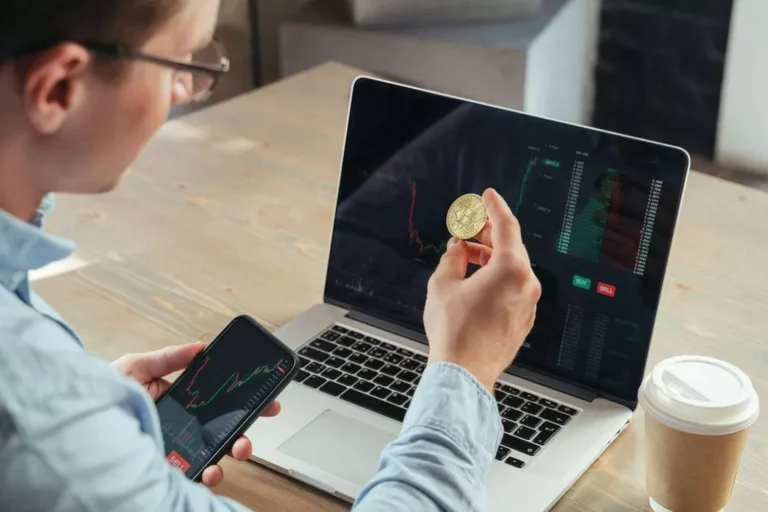Institutional Investor: Who They Are And How They Invest
Both these vehicles of funding even have an excellent role in the improvement and development of the overall economy of our country institutional trading in the long run. Market ImpactThe sheer measurement and quantity of trades executed by institutional merchants mean they have a substantial impression on the markets. When institutions buy or sell large quantities of an asset, they can move its worth significantly. For example, if a serious mutual fund decides to sell a big stake in a specific inventory, it may drive the price down due to elevated supply.

Examples Of Institutional Buying And Selling
- Dark swimming pools started forming in the Eighties after U.S. rules allowed trading securities off exchanges.
- Although the name feels like something out of science fiction, ‘dark pools’ are merely non-public securities exchanges.
- Since we began this weblog in 2012 we now have written many trading methods that you can read for free, please see our full list of trading methods.
- Retail traders can emulate this approach by conducting thorough elementary analysis and evaluating elements such as income progress, profit margins, and debt ranges.
- Institutional merchants have the power to put money into securities that usually aren’t out there to retail merchants, similar to forwards and swaps.
If you’re looking for a approach to make your investments work more durable for you, then you definitely’ve come to the proper place. The monetary industry has lengthy craved a look inside Simons’s secretive hedge fund, Renaissance Technologies. As Renaissance grew to become a significant participant in the financial world, its executives began exerting influence on different areas.

Institutional Trading Strategies
Retail traders, while numerous, sometimes don’t have the collective energy to affect markets in the identical method. However, in certain instances, retail traders can have a noticeable impact, especially once they act in unison, as seen within the 2021 “meme stock” frenzy involving shares like GameStop. While retail traders have extra entry than ever before to solid monetary data, investment education, and complex buying and selling platforms, they could be weak to behavioral biases. They could fail to know the ways in which a mass of buyers can drive the markets.
The Position And Affect Of The Institutional Dealer

The money that institutional traders use is not really cash that the institutions possess themselves. Institutional investors generally invest for different firms, organizations, and other people. If you have a pension plan at work, personal shares in a mutual fund, or pay for any type of insurance coverage, then you may be truly benefiting from the experience of those institutional buyers.
What Are The Several Types Of Institutional Investors?
Embarking on a journey through the complicated world of institutional buying and selling reveals a sphere dominated by entities as sturdy as CitiGroup and J.P. These institutional traders are the professionals operating the levers behind substantial funds and influencing market dynamics through calculated investment maneuvers. ConclusionInstitutional and retail merchants characterize two distinct teams in the monetary markets, each with distinctive strengths, challenges, and impacts.
They typically look to buy belongings at wholesale prices and promote at retail costs or seek for anomalies available within the market that occur due to increasing provide and demand, geopolitical events, and technological developments. For retail merchants, buying these instruments is usually inconceivable, partly as a result of these aren’t accessible for individual investors or they’re merely very expensive. Yet, many retail merchants who have the budget and are eager to comply with the steps of institutional trading make investments extra to get the assets wanted to get fast information and complex trading platforms. Institutional traders have the power to invest in securities that usually aren’t obtainable to retail traders, similar to forwards and swaps. The complicated nature and forms of transactions sometimes discourage or prohibit particular person traders. Two main teams that actively take part in investment activities are institutional and retail investors.
These traders may also take the opposite aspect of a commerce, buying when others are promoting and selling when others are buying, so as to balance their portfolios by modifying their holdings. Some give attention to fundamental evaluation whereas others depend on technical analysis or quantitative fashions. One of the explanation why institutional trading is necessary is that it provides liquidity to the market. These securities are often traded on many brokers and traded on many trading platforms, just like the New York Stock Exchange. The regulatory framework governing institutional buying and selling aims at guaranteeing transparency, equity, and investor protection. For example, if a big institution suddenly sells off a important portion of its holdings in a specific safety, it may trigger panic selling amongst other traders and trigger prices to plummet.
This patient approach enables them to put cash into property with long-term progress potential, fostering a extra stable and sustainable portfolio. Looking ahead, the means ahead for institutional trading is ready to unfurl within a site increasingly governed by the breakthroughs of fintech. Algorithms empowers high-frequency buying and selling, synthetic intelligence informs funding selections, and all are underpinned by robust cybersecurity measures. The repercussions of these developments are multidimensional; not only do they redefine the method and capabilities of skilled merchants, however they also culminate in a considerable world market impression. Such developments promise to steepen the trajectory towards an period where effectivity and precision are the linchpins of economic mastery.
Retail buyers are usually pushed by personal, life-event targets, similar to planning for retirement, saving for their children’s training, buying a home, or financing some other giant buy. Institutional traders typically use brokers and specialized buying and selling platforms to execute their trades. Large orders may be traded over a quantity of days to reduce market influence and scale back the chance of value slippage. Algorithmic trading and dark swimming pools are also used to execute trades effectively and discreetly.
While institutional and retail traders differ in many aspects, there are areas the place their buying and selling strategies might converge. Both teams may use similar buying and selling instruments and techniques, as an example, technical evaluation, fundamental analysis, and algorithmic trading. When evaluating the panorama of financial buying and selling, it’s evident that institutional traders function with distinct benefits. The sheer institutional buying and selling volume and the power to barter trading fees set these entities aside from their retail counterparts.
Institutional traders commonly engage in block trades, usually exceeding 10,000 shares, to leverage their massive capital swimming pools and exert a considerable influence on inventory prices. Their trades are strategically distributed amongst numerous brokers or over time to discreetly combine their sizable orders into the market without precipitating sudden price shifts. In analyzing institutional vs retail buying and selling quantity, one must contemplate the challenges institutional merchants face when managing significant cash positions in smaller-cap firms. The danger of inadvertently acquiring a controlling curiosity or disrupting market liquidity necessitates a bias towards higher market capitalization shares. Technological developments have been a game-changer for retail merchants, leveling the taking half in field with subtle buying and selling platforms and analytical instruments that had been traditionally exclusive to institutional traders.
Read more about https://www.xcritical.in/ here.

